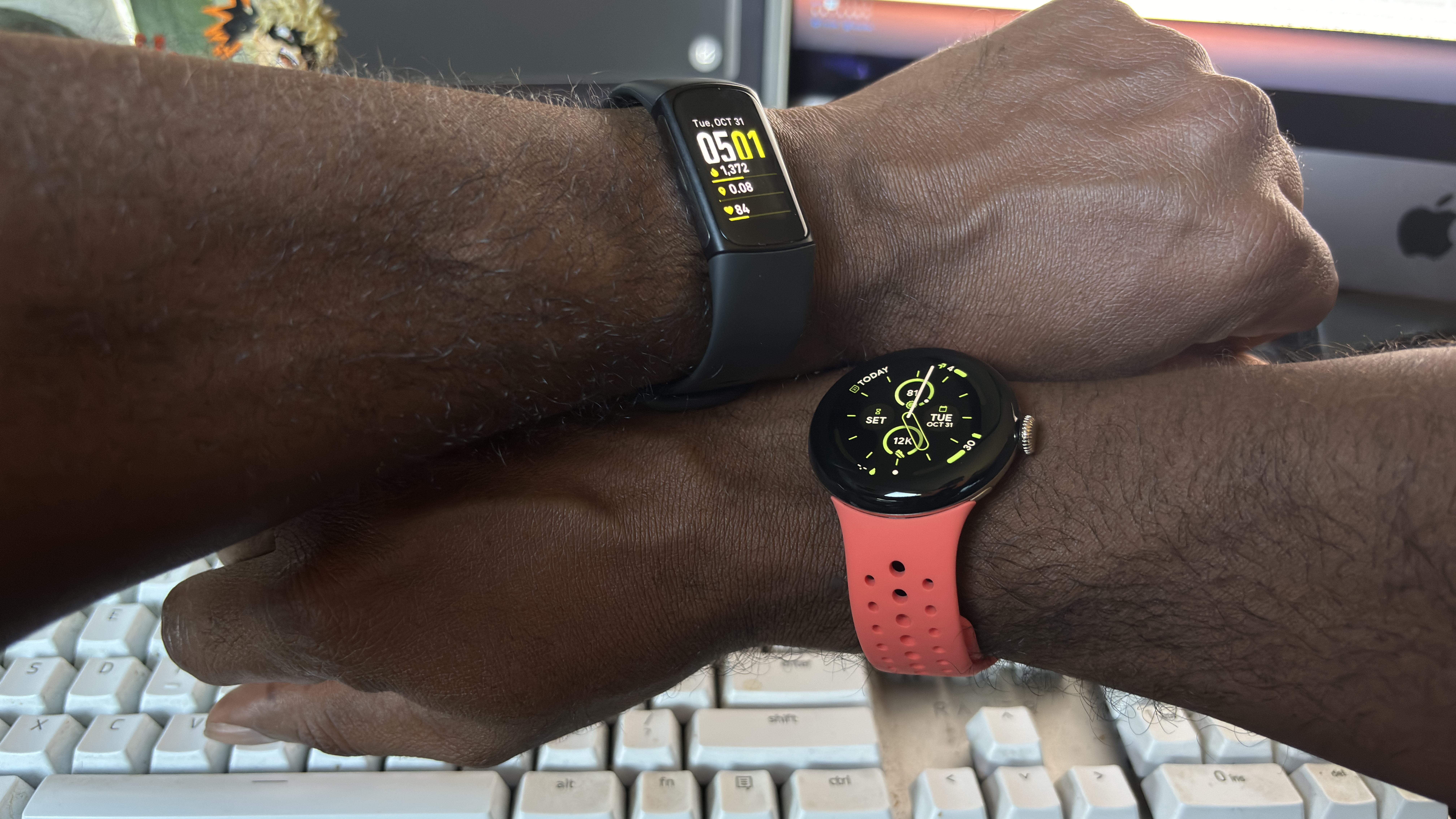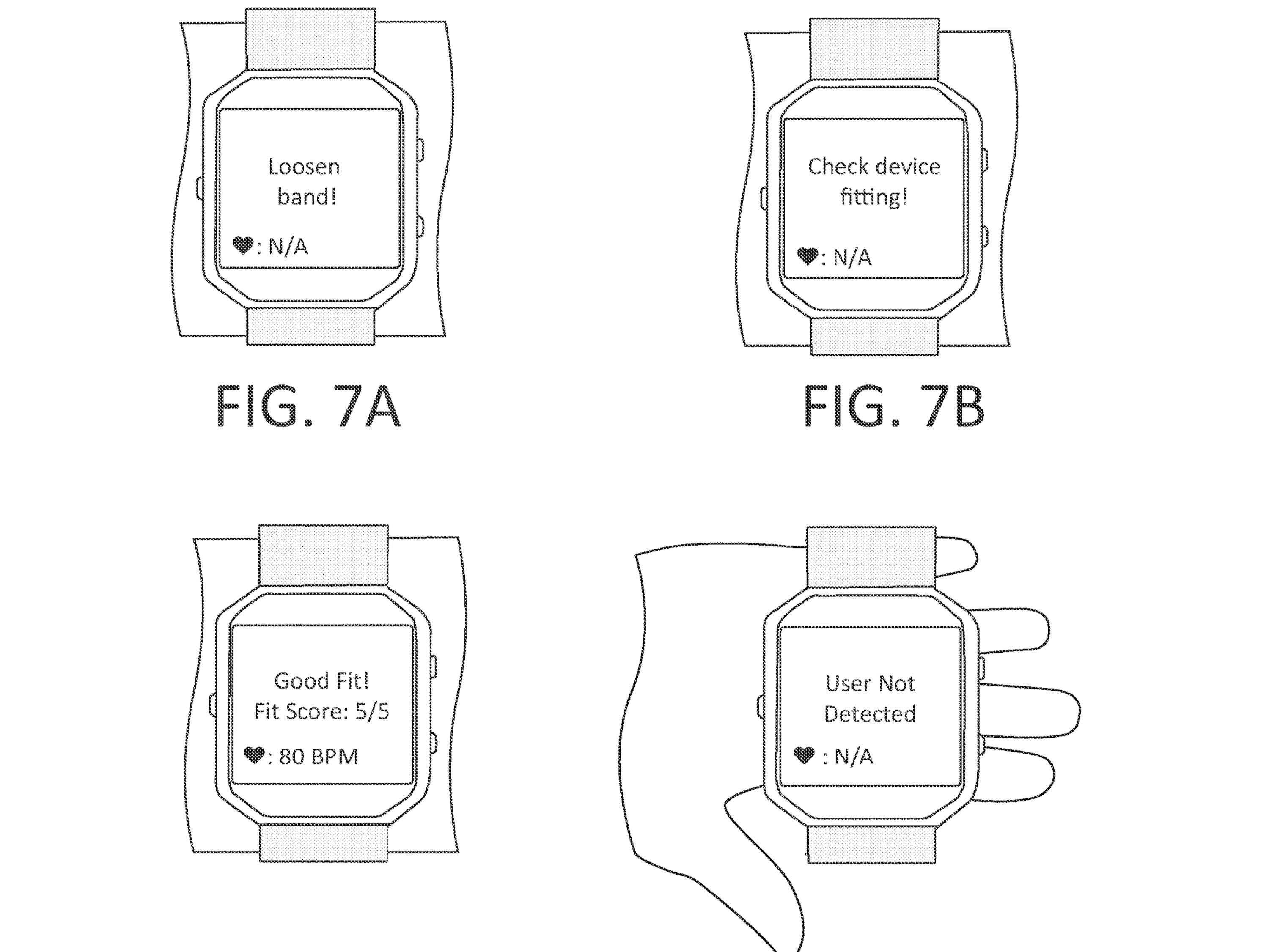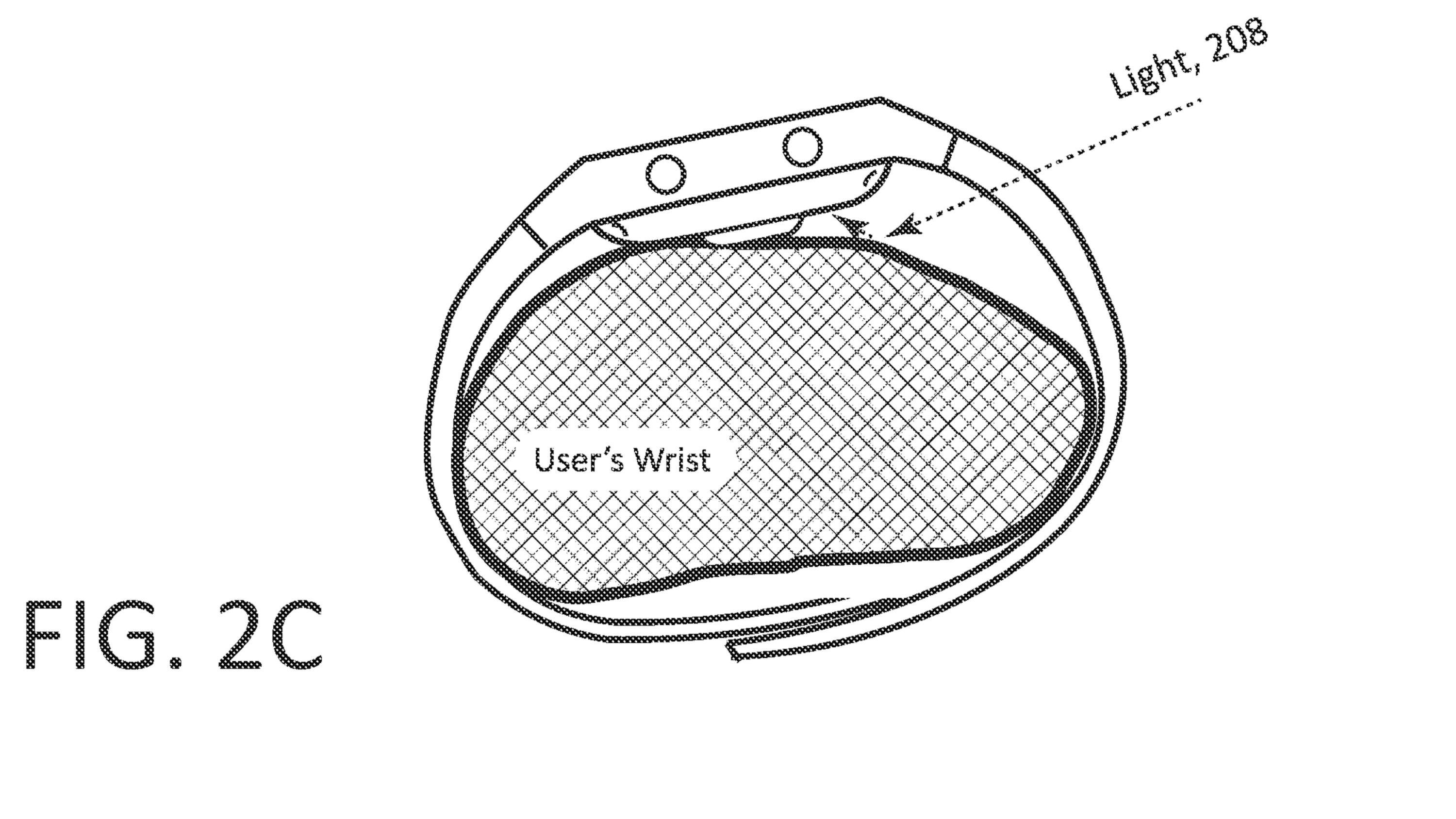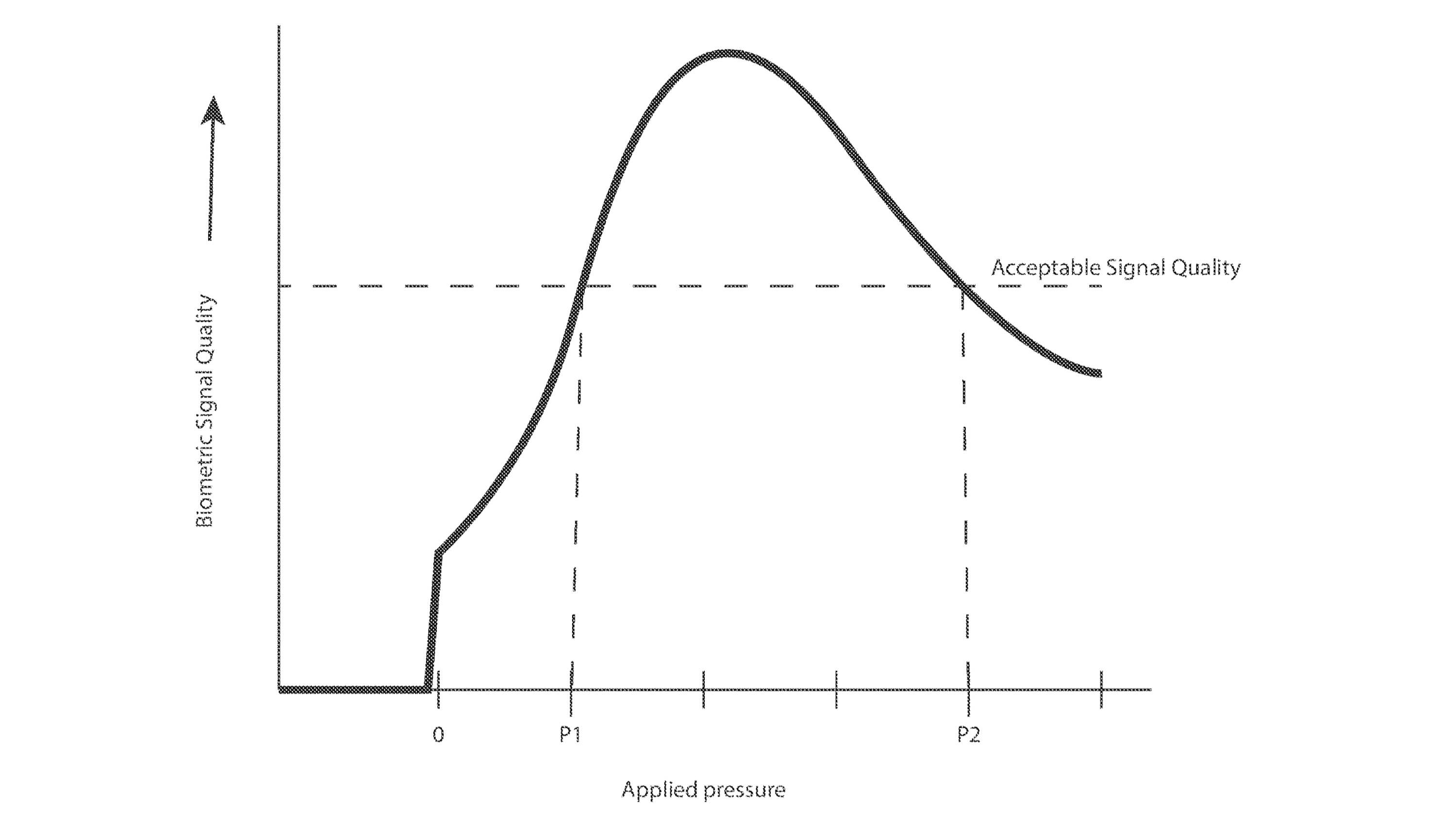Fitbit patented a 'Fit Score' trick that every smartwatch could use
Your future Fitbit or Pixel Watch will tell you whether you're wearing it correctly, giving you more accurate heart rate data.

What you need to know
- Fitbit plans to implement a "Fit score" that will tell you how well your wearable is fitted to your wrist.
- Using pressure sensors, it'll tell you whether the biometric signal quality is high enough to deliver accurate heart rate results.
- If the Fitbit detects a poor fit, it can "calibrate" blood oxygen data to take this into account.
- Fitbit patented the ability to add "pressure sensor integration" to its wearables on December 26.
Fitbit finally received a go-ahead for an exclusive feature, after four years of anticipation.
Back in 2019, Fitbit filed a patent for registering how well a smartwatch or fitness band is fitted, judging whether or not the health sensors are sitting flush against your wrist skin for accurate data. It refiled the patent last summer, and finally had the patent approved on December 26.
In the patent exhibit photos below, you can see how it might work on a future Fitbit Sense or Versa: the watch would score how well it's fitted, telling you specifically that it's too tight or loose until you get a 5/5 "Fit Score."
The patent suggests that different people have different fits that will work for them based on "differences in wrist size, skin color, hair density, BMI, fat percentage, and the likes." The Fit Score would then take this data into account when suggesting adjustments.

To figure out how well your Fitbit fits, it would use a "Micro-Electro-Mechanical System (MEMS)" made up of sensors that could measure force, contact, or strain across the device's bottom surface.
Essentially, it would detect if the Fitbit pushed too closely against your skin for proper readings, or if "a first PPG (Photoplethysmography) sensor has better skin contact than a second PPG sensor located at a different position of the device." In the latter case, it would only use the first PPG sensor data until the user successfully readjusted their watch.
Fitbit would also use skin temperature data to help determine how closely your watch was fitted, giving specific models like the Charge 6 or Sense 2 an edge.
Be an expert in 5 minutes
Get the latest news from Android Central, your trusted companion in the world of Android
This Fitbit "Fit Score" system would prove especially useful for SpO2 (blood oxygen) readings, according to the patent. "If a SpO2 skin sensor is pressed too tightly against the user's skin, the sensor may provide data indicative of sleep apnea," they warn. That's something we've noticed when reviewing watches like the Galaxy Watch 6 with a somewhat loose fit, as it would give brutally low SpO2 readings.


Instead, with this system in place, your Fitbit would calibrate (aka adjust) data when detecting excess force, or throw out any readings if the watch becomes too loose overnight. The same would no doubt apply to other data, such as passive AFib detection.
There's no timeline on how long this system will take to implement. The patent explains that they'll need to first design a prototype that'll help them determine the "acceptable range of values" for a fit signature, then give the prototype to test groups to see whether the patented system works. That could take years — unless Fitbit began testing the feature in 2019.
In that case, we could very well see this "pressure sensor integration" in the Fitbit Sense 3, Versa 5, or Pixel Watch 3, all of which are expected to launch in 2024.
We also saw a Google patent showing a crown-less watch that used pressure sensitivity along the bezel for touch and squeeze controls. The two patents would certainly mesh for an intriguing Pixel Watch 3 upgrade, if Google chooses to use them both.
Overall, we're quite excited about this technology, and the only shame here is that if Fitbit successfully patented it, that means other popular Android watch or fitness watch brands won't be able to use it themselves. As it stands, if you can't trust your watch to know when a poor fit is skewing data, then you could receive false health data that either worries you for nothing or lulls you into a false sense of security.
(Via Gadgets & Wearables)

Michael is Android Central's resident expert on wearables and fitness. Before joining Android Central, he freelanced for years at Techradar, Wareable, Windows Central, and Digital Trends. Channeling his love of running, he established himself as an expert on fitness watches, testing and reviewing models from Garmin, Fitbit, Samsung, Apple, COROS, Polar, Amazfit, Suunto, and more.
